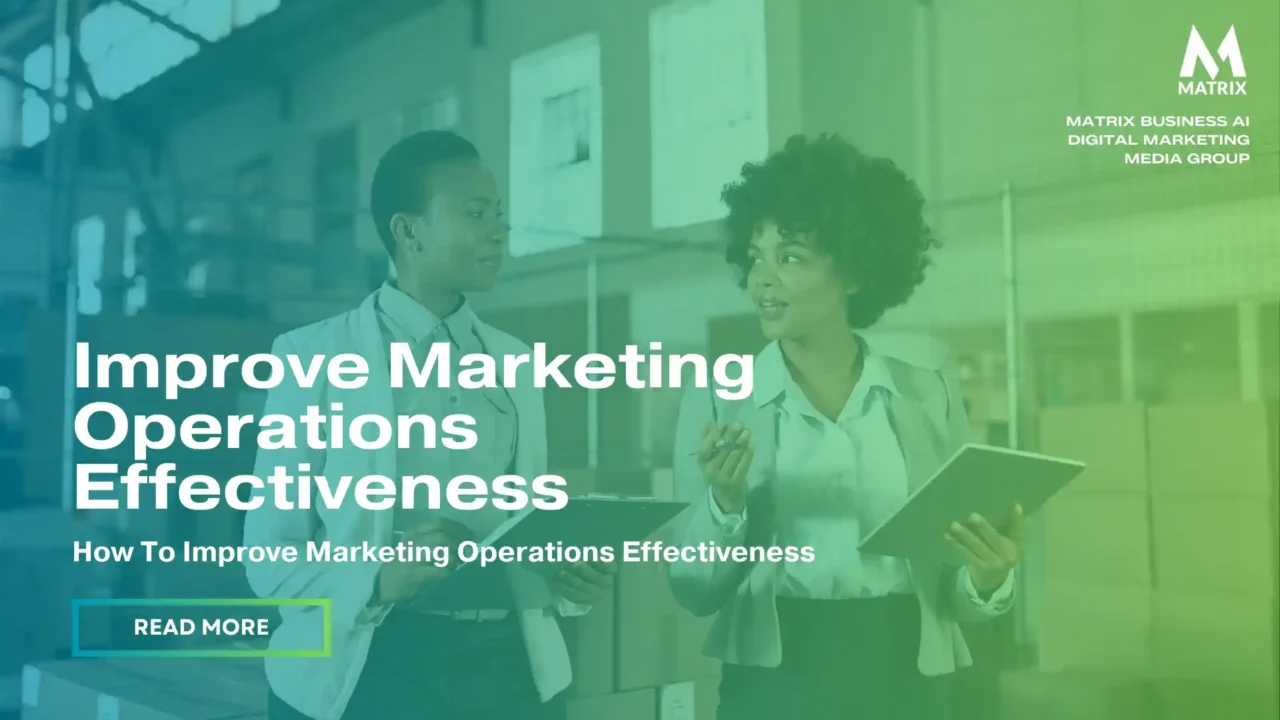How to improve marketing operations effectiveness.
Learn how to enhance the effectiveness of your marketing operations.
Improving Marketing Operations Effectiveness: A Key Driver for Business Growth
In today’s digital age, where businesses constantly strive to stay competitive, marketing operations are crucial in driving growth and success.
Effective marketing operations can streamline processes, optimize campaigns, and deliver measurable results. However, many organizations require assistance with inefficiencies, a lack of alignment, and inadequate data management, which can result in suboptimal marketing outcomes.
This article examines the effectiveness of enhancing marketing operations, highlights key trends, and offers practical strategies to improve performance.
The Need for Enhanced Marketing Operations Effectiveness

Marketing operations are the backbone of any successful marketing strategy. It involves planning, executing, and measuring marketing activities.
When marketing operations are ineffective, it can lead to wasted resources, missed opportunities, and a lack of accountability.
The CEO wants the CMO to:
- Increase brand awareness and visibility
- Generate more qualified leads
- Improve customer engagement and loyalty
- Drive revenue growth
- Align marketing efforts with business goals
- Provide real-time insights into marketing performance
- Develop a strategic and data-driven approach to marketing
Common Challenges in Marketing Operations
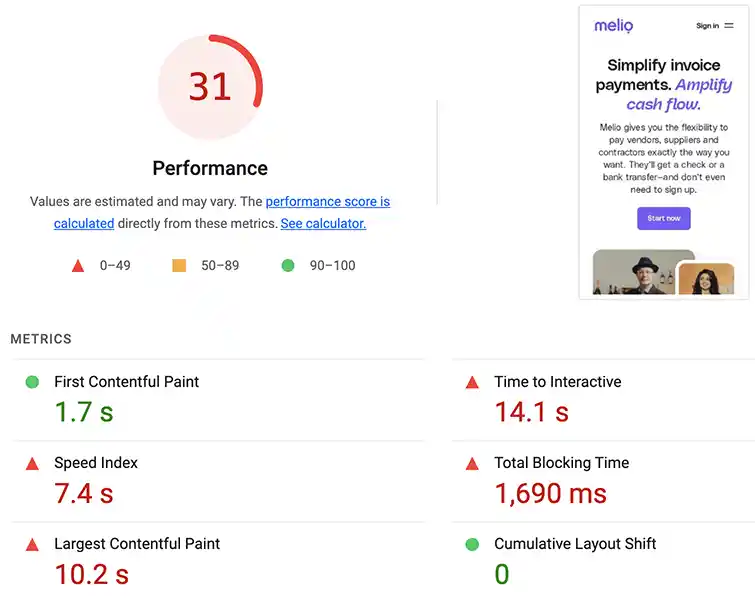
Organizations often face several challenges in their marketing operations, including
- Siloed data and a lack of integration between systems
- Manual and time-consuming processes
- Inconsistent measurement and reporting
- Difficulty in aligning marketing and sales teams
- Limited resources and budget constraints
These challenges can significantly hinder marketing performance and prevent organizations from achieving their full potential.
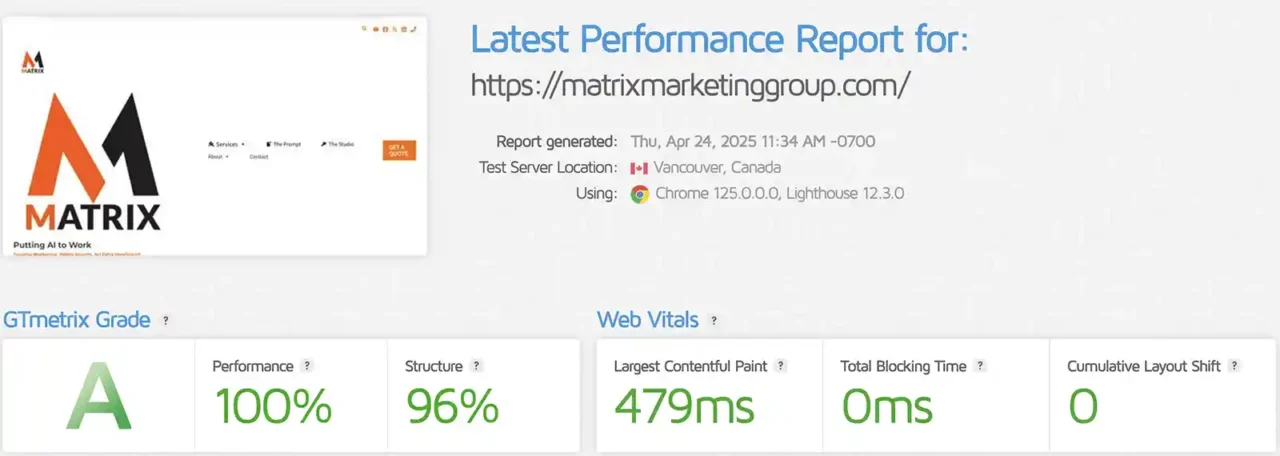
Interesting Stats About Poor Marketing Operation Effectiveness and Trends
- Only 44% of marketers are satisfied with their marketing operations. (Source: DemandGen Report)
- Marketing operations inefficiencies cost businesses an average of $1.5 million annually. (Source: Aberdeen Group)
- 92% of marketers believe that marketing operations are critical to their success, but only 55% are confident in their ability to execute. (Source: Gartner)
- The average marketing technology stack comprises 91 tools, but only 20% of these are integrated. (Source: MarTech)
- 80% of marketing data is dark data, meaning it is unused and inaccessible. (Source: SiriusDecisions)
- Only 35% of marketers have a single view of the customer. (Source: Salesforce)
- 60% of marketers say they are not prepared for the future of marketing. (Source: Forrester)
Google Ads Checklist – Download Now! 🚀
Struggling to get the most out of your Google Ads? 🔥 Download our Google Ads Optimization Checklist and take your campaigns to the next level!
✅ Maximize Clicks & Conversions
✅ Lower Your Cost-Per-Click (CPC)
✅ Improve Ad Quality Scores
✅ Target the Right Audience
This free checklist will help you set up, optimize, and scale your Google Ads campaigns for maximum ROI.
Trends That Only Some People Are Talking About
- The rise of AI and machine learning in marketing operations. AI can automate tasks, analyze data, and provide insights to help marketers improve their effectiveness.
- The increasing importance of customer data privacy. Marketers must be mindful of collecting, storing, and using customer data to comply with regulations and protect customer trust.
- The need for agility and adaptability in marketing operations. The marketing landscape is constantly changing, so marketers must adapt quickly to new trends and technologies.
- The growing importance of marketing analytics. Marketers need to be able to measure the effectiveness of their campaigns and make data-driven decisions.
- The convergence of marketing and sales. Marketing and sales are becoming increasingly aligned, and marketers need to be able to work closely with sales teams to drive revenue.
Your Blueprint for SEO Success in 2025
Whether you’re a business owner, marketer, or seasoned SEO professional, this guide is tailored to give you a competitive edge in the evolving digital landscape. Get SEO Pricing.
Common Pains and Desires of CMOs with Poor Marketing ROI
CMOs are vital in driving business growth through effective marketing strategies. However, many CMOs face challenges in achieving a positive return on investment (ROI) from their marketing efforts. Here are some common pains and desires that CMOs with poor marketing ROI may have:
Pains:
- Difficulty in measuring the impact of marketing campaigns on revenue
- Wasted marketing spend due to ineffective campaigns
- Lack of alignment between marketing and sales teams
- Inability to generate qualified leads
- Limited resources and budget constraints
- Difficulty in keeping up with the latest marketing trends and technologies
- Poor customer engagement and retention
- Lack of a clear and compelling brand message
Desires:
- Improved marketing ROI and better alignment with business goals
- Increased brand awareness and visibility
- More qualified leads and higher conversion rates
- Improved customer engagement and loyalty
- A strong and cohesive marketing team
- Access to the latest marketing tools and technologies
- A clear and consistent brand message
- Real-time insights into marketing performance
- A strategic and data-driven approach to marketing
Improving Marketing Operations Effectiveness: A Key Driver for Better Lead Conversions
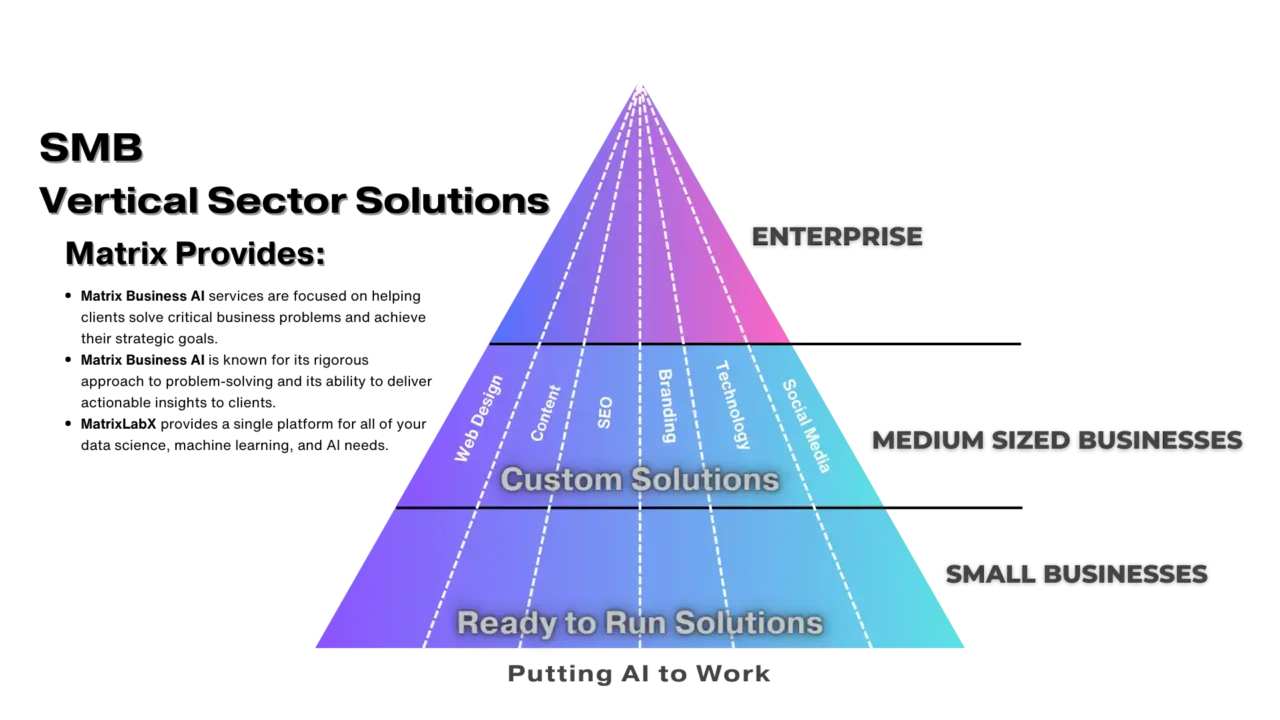
In today’s digital landscape, marketing operations are crucial in generating leads and driving conversions.
Effective marketing operations can streamline processes, optimize campaigns, and deliver measurable results.
However, many organizations struggle with inefficiencies, a lack of alignment, and poor data management, leading to suboptimal lead conversion rates.
Top 3 Benefits of Using AI in Digital Marketing
- Improved Lead Generation and Qualification:
AI algorithms can analyze large volumes of data to identify potential customers most likely to convert. This allows marketers to focus their efforts on qualified leads, increasing the chances of conversion. - Personalized Customer Experiences:
AI can create personalized marketing campaigns and content tailored to each customer’s needs and interests. This can lead to higher engagement rates and improved conversions. - Enhanced Marketing Analytics and Reporting:
AI can help marketers track and analyze marketing performance in real time, providing valuable insights that can be used to optimize campaigns and improve results.
Marketing Operations Effectiveness Improvement Roadmap
Goal: Improve marketing operations effectiveness to drive better lead conversions and increase revenue.
Objectives:
- Streamline marketing processes and workflows
- Optimize marketing campaigns for better results
- Improve data management and analytics capabilities
- Build a strong and cohesive marketing team
- Implement a strategic and data-driven approach to marketing
Initiatives:
Q1 2025:
- Conduct a marketing operations assessment to identify areas for improvement
- Develop a marketing operations improvement plan
- Implement marketing automation software to streamline processes and workflows
- Train the marketing team on new marketing automation software
Q2 2025:
- Optimize marketing campaigns for better results
- Improve data management and analytics capabilities
- Build a strong and cohesive marketing team
Q3 2025:
- Implement a strategic and data-driven approach to marketing
- Measure the impact of marketing operations improvements on lead conversions and revenue
Q4 2025:
- Continue to improve marketing operations processes and workflows
- Explore new marketing technologies and tools
- Stay up-to-date on the latest marketing trends and best practices
CMOs have a lot on their plates. It is easy to get caught up in creating content, engaging with followers, and running ads.
However, it’s crucial to step back and take a look at the big picture from time to time. How effective are your marketing operations? Are you maximizing your time and resources?
In this article, we’ll discuss marketing operations, why it’s important, and how you can improve the effectiveness of your marketing operations.
Return on Investment (ROI) from Thought Leadership SEO
Thought leadership SEO campaigns, which involve strategic planning and high-quality content creation, have demonstrated a return on advertising spend (ROAS) of 9.10, equating to a 748% ROI, with a typical break-even point at around 9 months. Review how to win with SEO Services.
What is Marketing Operations?
Marketing operations is the process of planning, executing, and measuring marketing activities. It involves a wide range of tasks, including:
- Marketing strategy: Developing and implementing a marketing strategy that aligns with your business goals
- Campaign management: Planning and executing marketing campaigns
- Content marketing: Creating and publishing content that attracts and engages your target audience
- Social media marketing: Managing your social media presence and engaging with your followers
- Email marketing: Creating and sending emails to your subscribers
- Marketing analytics: Measuring the effectiveness of your marketing efforts
Why is improving the effectiveness of marketing operations important?
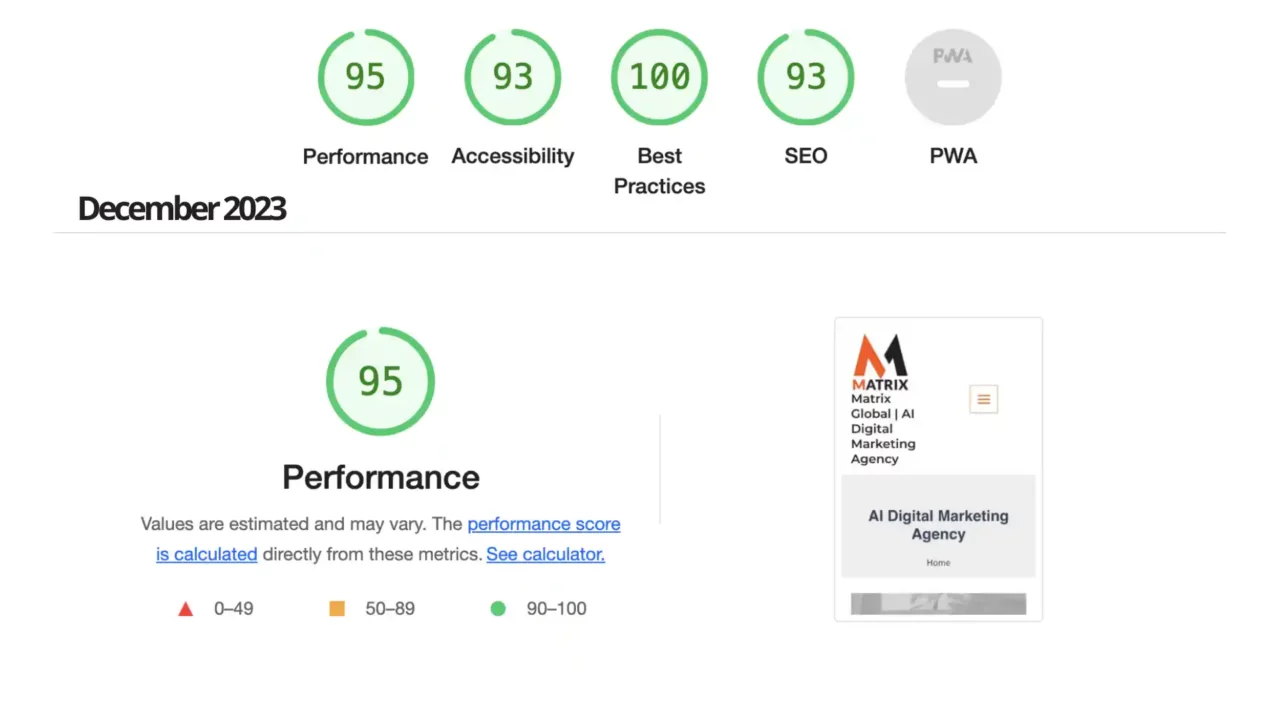
Improving marketing operations effectiveness can have many benefits for your business, including:
- Increased efficiency: Streamlining your marketing operations can help you save time and resources.
- Improved results: Effective marketing operations can lead to enhanced campaign performance and increased return on investment (ROI).
- Better alignment with business goals: Aligning your marketing operations with your business goals can help you achieve greater success.
- Improved customer experience: Effective marketing operations can help create a more positive and seamless customer experience.
How to improve your marketing operations’ effectiveness
There are many things you can do to improvethe effectiveness of your marketing operations, including
- Use marketing automation tools: Marketing automation tools can help you automate tasks, track your progress, and measure your results.
- Implement a marketing operations platform: A marketing operations platform can help you centralize your marketing data and processes.
- Hire a marketing operations manager: A marketing operations manager can help you oversee your marketing operations and ensure they are effective.
- Get buy-in from your leadership team: Before making any changes to your marketing operations, it’s essential to obtain buy-in from your leadership team.
- Measure your results: It’s essential to track your progress and make improvements over time by measuring your results.
How to Improve Marketing Operations Effectiveness: 3 Use Cases
Marketing operations are pivotal in driving business success in today’s digital age. Effective marketing operations can streamline processes, optimize campaigns, and deliver tangible results.
However, many organizations struggle with inefficiencies, a lack of alignment, and poor data management, leading to suboptimal marketing performance.
This article will explore three compelling use cases that demonstrate how organizations can significantly enhance the effectiveness of their marketing operations, resulting in increased lead conversions and improved business outcomes.
Use Case 1: Streamlining Lead Management Processes
Challenge: Manual and time-consuming lead management processes can hinder lead qualification, nurturing, and conversion efforts.
Solution: Implementing a centralized lead management system can automate lead capture, qualification, and distribution, improving efficiency and ensuring that qualified leads are promptly routed to the appropriate sales teams.
Benefits:
- Faster lead response times
- Improved lead quality
- Increased lead conversion rates
- Enhanced collaboration between marketing and sales teams
Use Case 2: Personalizing Customer Experiences
Challenge: Inconsistent and impersonal customer experiences can lead to decreased engagement and lower conversion rates.
Solution: Leveraging customer data and AI-powered personalization engines can deliver tailored content, offers, and recommendations to each customer, creating a highly personalized and engaging experience.
Benefits:
- Increased customer engagement and satisfaction
- Improved brand loyalty
- Higher conversion rates
- Stronger customer relationships
Use Case 3: Optimizing Marketing Campaigns with Data-Driven Insights
Challenge: A lack of data integration and analytics capabilities can hinder the measurement of campaign performance and the making of informed decisions.
Solution: Implementing a robust marketing analytics platform can provide real-time insights into campaign performance, allowing marketers to track key metrics, identify underperforming campaigns, and reallocate resources to high-performing channels.
Benefits:
- Improved campaign ROI
- Increased marketing efficiency
- Data-driven decision-making
- Ability to adapt campaigns quickly based on results
Step-by-Step Guide to Supercharge Your Marketing with Matrix Marketing Group
Step 1: Assess Your Current Marketing Situation
- Begin by evaluating your existing marketing strategies and their effectiveness.
- Identify areas of improvement and set clear goals for what you want to achieve.
Step 2: Partner with Matrix Marketing Group
- Engage the services of Matrix Marketing Group, a reputable AI digital marketing agency.
- Their expertise in AI-powered marketing solutions can provide valuable insights and drive better results.
Step 3: Develop a Data-Driven Marketing Strategy
- Collaborate with Matrix Marketing Group to create a comprehensive marketing strategy.
- Leverage AI-driven data analysis to understand your target audience, market trends, and competitive landscape.
Step 4: Implement AI-Powered Marketing Solutions
- Utilize Matrix Marketing Group’s AI-powered tools and platforms.
- Automate tasks, personalize customer experiences, and optimize campaigns for better ROI.
Step 5: Analyze Results and Continuously Optimize
- Regularly review campaign performance using Matrix Marketing Group’s analytics and reporting capabilities.
- Make data-driven adjustments to improve results and stay ahead of the competition.
Unleash Your Sales Potential: Matrix Marketing Group for Sales Channel Metrics
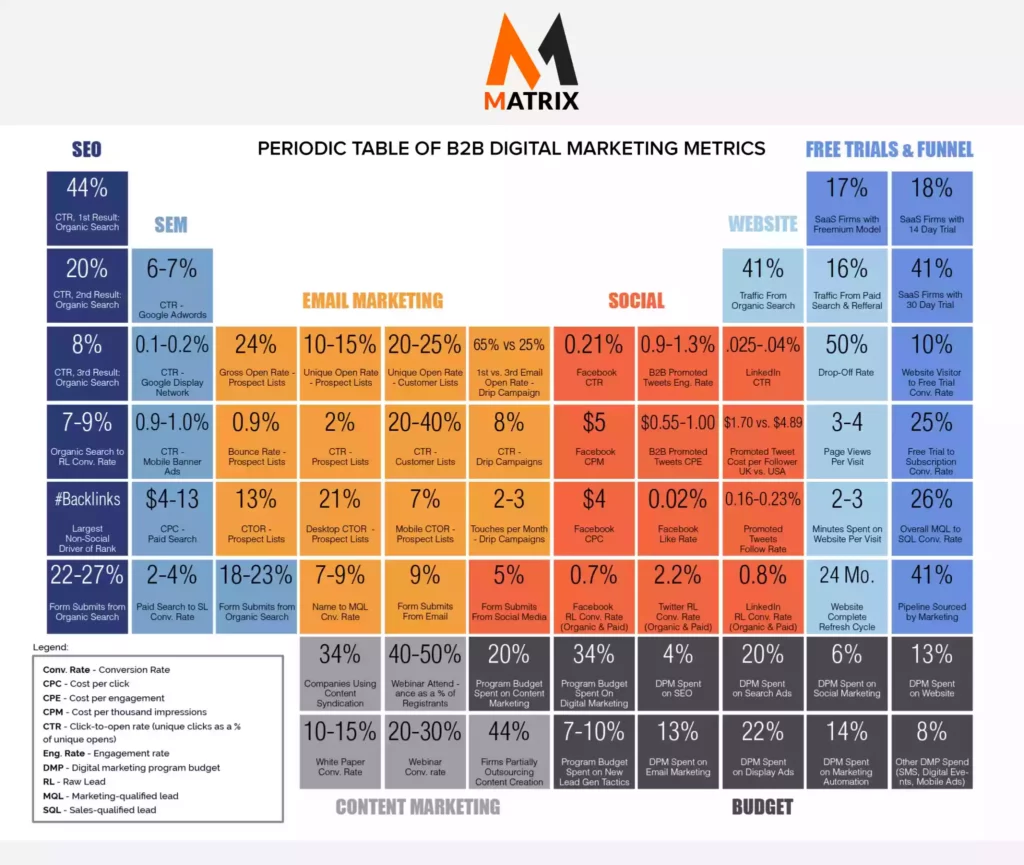
Transform Complex Campaigns with Ease and Gain a Competitive Edge
In today’s competitive business landscape, managing complex marketing campaigns can be daunting, particularly for organizations that lack the resources to execute them effectively.
Matrix Marketing Group offers a compelling solution that addresses this pain point and provides a significant competitive advantage through sales channel metrics.
Matrix Marketing Group’s expertise in sales channel metrics enables organizations to streamline their marketing operations, optimize campaign performance, and gain actionable insights into their sales pipeline.
By leveraging our data-driven approach and cutting-edge technology, we empower businesses to make informed decisions, allocate resources strategically, and achieve measurable results.
Effective campaign optimization and lead generation efforts result in increased sales.
Integrating marketing data from various sources and utilizing advanced analytics tools can provide actionable insights into campaign performance, customer behavior, and market trends, enabling marketers to make data-driven decisions and optimize campaigns for maximum impact.
- Improved campaign ROI
- Increased lead generation
- Better customer targeting
- Enhanced campaign performance
- Competitive advantage
By implementing effective marketing operations strategies and leveraging technology, organizations can streamline processes, personalize customer experiences, and make data-driven decisions, ultimately driving increased lead conversions and improving business outcomes.
A well-executed marketing operations strategy is the key to achieving marketing success in the digital age.





